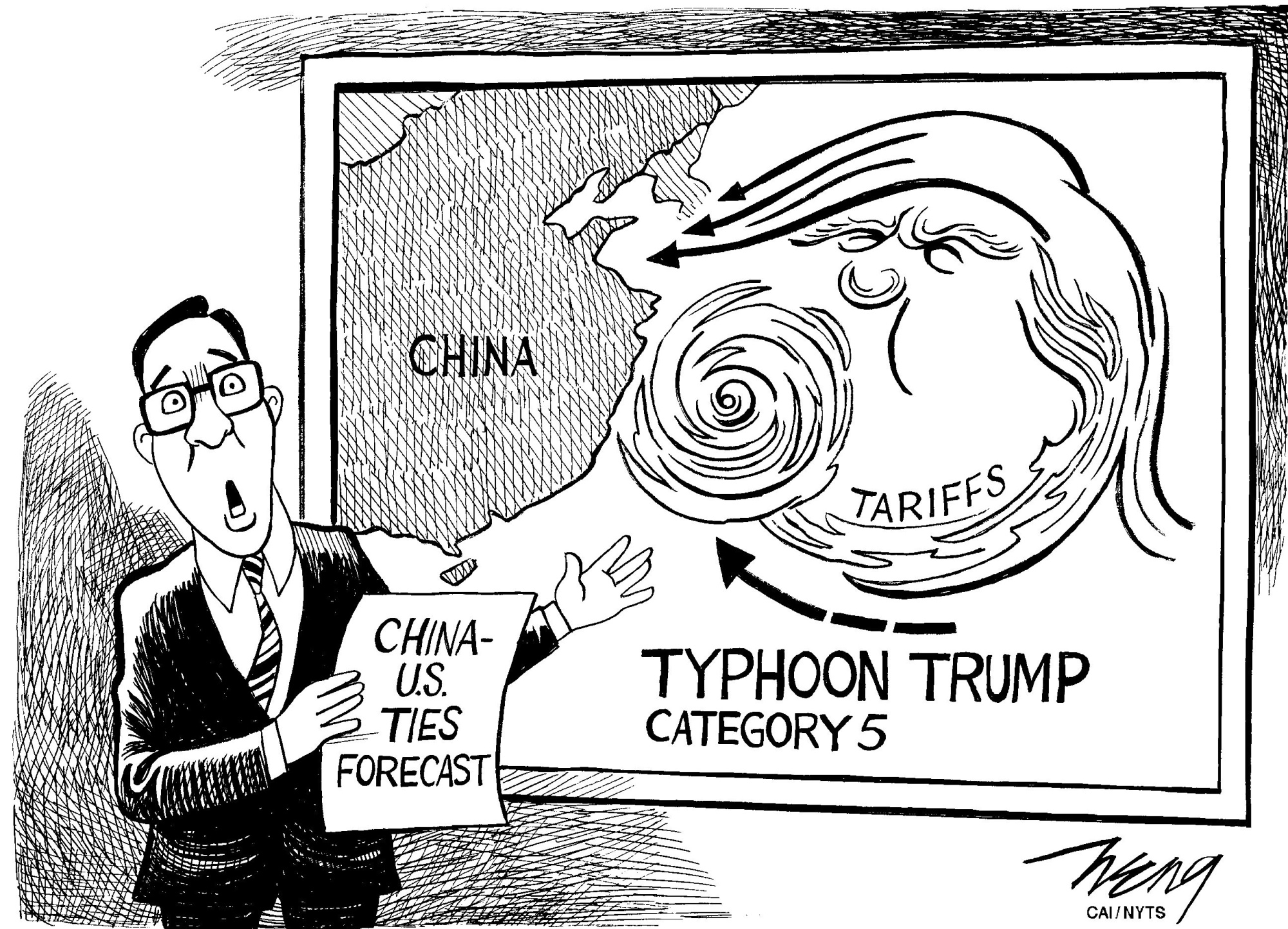U.S. President Donald Trump is determined to fight and win his trade war with China. China is equally ready to stand up to the president, and now believes that far more is at stake than the balance of trade. Positions are becoming entrenched and ego, as much as national interests, are engaged. A trade war between the world's two largest economies will be titanic, with spillover effects no matter how it is resolved. Japan, like many other countries, cannot sit out this struggle, and must be prepared for pressure from both sides, no matter who prevails.
Trump has held few steady beliefs throughout his life, but one of them is the certainty that its trade partners exploit relationships with the United States and exact a damaging toll on the country as a result. He pledged to transform those relationships and better protect U.S. jobs and businesses. He is convinced that American companies and foreign businesses should invest in the U.S. rather than elsewhere — in blissful disregard for the meaning and significance of comparative advantage — and he is using every tool in the presidential toolbox to achieve that objective. (And it is precisely because the president's power to impose tariffs is relatively unchecked and is something that he personally can do that Trump is so enamored of the tactic.)
Since Trump took office, his administration has imposed tariffs on a wide array of products with nearly no distinction made toward, or deference given to, allies. This indiscriminate approach threatens to undercut Trump's objective: The real problem, which even bitter opponents of Trump and avowed free traders concede, is China's predatory policies and a U.S. policy that lumps all countries together as "unfair traders" prevents the formation of a broad-based "free and fair trade coalition" that is the only hope for forcing Beijing to change course. Instead, China's leaders paint Trump as the threat to the global trade order and seek to enlist other governments to their side in these trade fights.



